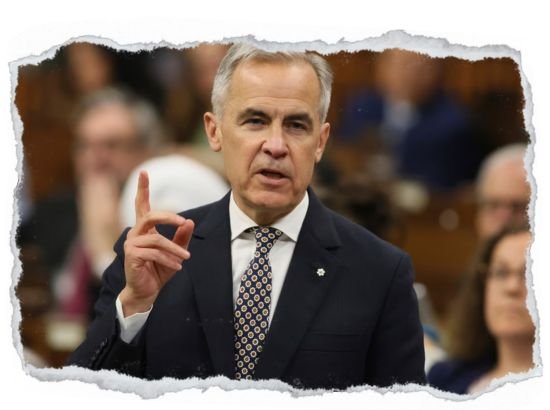
Canada Signals Policy Shift on Khalistan Under New PM Mark Carney, Emphasizes Strong Stand Against Terrorism
In a major foreign policy shift following Justin Trudeau’s exit as Prime Minister, Canada’s new leader Mark Carney has signaled a tougher approach on terrorism — including the long-sensitive Khalistan issue. The development marks a new chapter in India-Canada relations, as Carney’s government pledges to prioritize national security and communal harmony.
Carney, who recently took over as Canada’s Prime Minister, declared that his administration would stand firmly with all communities, including India, in the global fight against terrorism. He made it clear that Canada would adopt a strict stance to protect internal security and promote peace among ethnic groups.
Highlighting this commitment, Carney expressed deep sorrow over the 1985 bombing of Air India Flight 182, also known as the “Kanishka” bombing — the deadliest terrorist attack in Canadian history. In his remarks, he emphasized that the tragedy must never be forgotten and that Canada must remain united in remembering the victims.
“This was the most horrific terrorist attack in Canadian history,” said Carney. “We must honor the memory of those lost by ensuring our nation remains vigilant and united against extremism.”
This strong messaging contrasts sharply with the policies of the previous Trudeau administration, which was often criticized for being lenient or ambiguous in its handling of Khalistani extremism. India’s government had repeatedly raised concerns about pro-Khalistan elements operating freely in Canada.
By reaffirming Canada’s support for a united stand against terrorism, Carney appears to be extending an olive branch to New Delhi. His remarks are being viewed as an effort to rebuild strained diplomatic ties and reinforce mutual cooperation on security matters.
The shift is expected to bring a fresh trajectory to India-Canada relations, especially on issues like Khalistani extremism, extradition cases, and diasporic radicalism. Analysts suggest that both countries now have an opportunity to reset bilateral dialogue based on mutual trust and security alignment.
While it remains to be seen how this policy will be implemented on the ground, the signal from Ottawa is loud and clear — Canada is ready to take a tougher stand on extremism and seek closer cooperation with India in doing so.